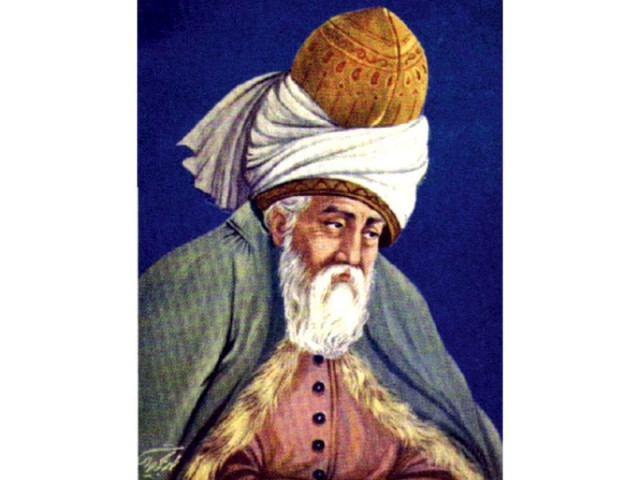Literary talk: Seeking solace in mysticism
Participants of an ongoing series on Rumi’s poetry reflect on various themes.

The participants marvelled at the poetry’s relevance, the beauty of language and the precision of thought in the verses.
Tucked away in the library of Kuch Khaas, a group sat to dissect the poetry of 13th century Persian poet Rumi on Tuesday. Known as the “Mathnawi Circle”, the group members gather every week to read out and interpret select verses, forming a story, from “Mathnawi”, one of the sufi saint’s finest pieces.
Shazray Hussain, who moderated the session, has been inclined towards theology, mysticism and spirituality since she was a teenager. Moreover, it was during a recent trip to Konya — Rumi’s birthplace — that this interest was rekindled, as she became a part of the sufi tradition.

Originally transcribed in Persian, the epic poem “The Mathnawi” has been translated into various languages including Urdu and English. It is in these three languages that the participants read out some stanzas at the event. The discussion centred on the story about “The Jewish king who would kill Christians out of his fanaticism”.
The “cross-eyed” king is a foe of Jesus and his followers. He sees Jesus and Moses as different beings when in fact, “prophets were one at heart.” Hussain related the concept of “Tauheed” or Oneness of God, expanding it to individuals. As according to religion and spirituality, all beings are one, everything is interconnected in the universe, she added.

Although the verses depict the king as oppressive, it is actually his cunning vizier who plays the devil’s advocate to rule over the masses.
He is an eloquent turncoat, as discussed at the event, who can hoodwink anyone — be it the king or the oppressed. He “ties knots in water” to outwit a defenceless audience.
The participants agreed that the vizier is symbolic of the deception being fed to society by the powers that be. He could represent anyone from sensationalistic media underdogs to conspiracy theorists. While reading out a line, “Desire can make you cross-eyed in its spell,” a participant said the context reminded her of the former dictator Ziaul Haq.
Some drew parallels between the verses and conflict in current times. The Syrian crisis, sectarian violence within the country and the recent attack on a school bus carrying girls in Balochistan were all touched upon at various points during the evening.
The participants marvelled at the poetry’s relevance, the beauty of language and the precision of thought in the verses. This was the 15th session of the circle that reviews a new story from the book during each sitting.
Published in The Express Tribune, June 20th, 2013.



















COMMENTS
Comments are moderated and generally will be posted if they are on-topic and not abusive.
For more information, please see our Comments FAQ